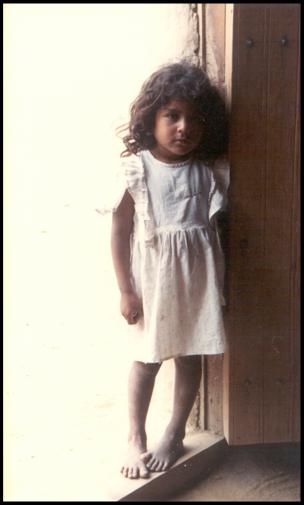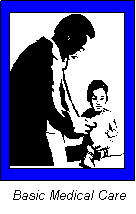How our “Touch a Life” program operates
www.touchalife.net
An Introduction to our method:
All children sponsored are in the direct care and administration of a pastor with whom we already have a ministry relationship. He has personal knowledge or your child and approved their application for assistance. We operate in partnership with these pastors and their churches in order to guarantee accountability and honesty in dealing with your child’s needs, support and future. So that you will better understand the quality of preachers that we are working with, let me briefly explain the approval process for these preachers. We work through established organizational structures in foreign countries, that already have an accountability system in place. It is our desire to support such preachers who are held highly accountable for their doctrine, life style, ministry and family life.
For more detail on our approval process of the pastors who act as Touch a Life Directors as well as general ministry information please see our website at:www.finalfrontiers.org
Now, about our program …
Nothing moves the heart more than the cry of a helpless child. The problem is, we seldom hear their cry. It has been drowned out by distance, language differences, our own personal financial crisis and day to day concerns for ourselves, our families and our lives in general. Yet they continue to cry for our help.
Years ago we began to receive correspondence from poverty stricken national preachers in third world countries, whom we were sponsoring in an effort to help them enlarge their ministries. We found that more and more of them were taking their own support and using it to feed, clothe and house children, whom they would see day by day in their ministries. These were orphaned, abandoned and destitute children, who were fleeing tribal wars, religious persecution and devastating poverty.
We felt that since these preachers were so willing to take from their personal, meager funds in order to care for these small strangers, that we should do all we can to encourage Believers in the West to give from our abundance to help with this cause as well. Thus, Touch a Life was born as a ministry subsidiary of the Final Frontiers Foundation. The seed of this ministry was germinated in the hearts of these national preachers, and transplanted in ours and in yours. The concept is simple: to visibly demonstrate Christ’s love, by offering supervised care and relief to children who live in such desperate need.

You may find more information about Touch a Life on our website at: www.touchalife.net or through a link on our parent website at www.finalfrontiers.org
Our Purpose
The purpose of Touch a Life is to offer Christ’s love in visible form through care and relief, to orphaned, abandoned and destitute children; while providing for the sponsor, the highest level of personal involvement and financial accountability.
Our Program ...
There are three classifications of children whom we assist …
… and three types of placement programs.
Child Classifications ...
Orphaned
The word speaks for itself. An orphaned child is one whose mother and father have passed away. In many cultures, upon the death of the father, the mother through anxiety, family persecution or poverty, is soon deceased as well. Formerly in India, (and still practiced today though seldom admitted by government officials) when the husband died, the wife was tied to his dead body and cremated with him. The children, if not taken in by a family member, were left to roam the streets or jungles; abused, hungry, and destined for an early and unmarked grave. This remains the lot in life for children around the world who are left parentless. Huger, filth, disease and premature death are the companions of orphaned children.
Abandoned
Many children, due to poverty or shame, are abandoned and left to care for themselves. Typically those who survive do so, because they cluster with other street children. In this setting the child quickly learns what to do in order to survive. Prostitution, pedophile abuse, theft and begging soon become the daily life style of these children. The real tragedy in this is that these children have families but they have been cast out. Often they will be taken to a city far away and left, not knowing how to find their way home; not old enough to even know the name of a relative or the village they are from. They may as well be orphans literally, because they are “dead” to their families.
Destitute
These are children who do not fare as poorly as the others, since they do have families and live at home; but home being as it is, steeped in poverty, they lack the nutrition, education and medical care they will need to grow into productive, healthy adults. Thus this cycle of poverty will be repeated for another generation. Destitute children often survive on a meal a day or even less, they are often denied education because they cannot afford to pay for it or because the parents put them to work as early as age five to help put food on the table. These children may or may not have the love of their parent(s); but that is all they have.
Traditional Orphanages/Hostels
When we hear this word, we immediately envision a cold, damp, institutional type setting. Thankfully, this is not the case with the ministries with whom we affiliate.
All orphanages involved in our program are ministries of a local, national church. They are staffed by loving Christian house parents and their daily lives are overseen by their pastor. He knows their names, he knows their personal situation; and they know what it is to be picked up and loved by him, his wife, and the church members. Through these local church members, the children daily feel the care and concern that Christ has to offer them.
Home Placement
More and more of the ministries we affiliate with are changing to this method. In some ways, Touch a Life, through the pastors supported by the Final Frontiers Foundation, has pioneered this program. We cannot take the credit however, for this is a concept given to Jon Nelms in the early 1990s by pastors in Vietnam, who had already been using this method for more than two decades.
Before the fall of their country to communism, they had for years conducted a typical orphanage. (Many of the pastors now supported by Final Frontiers, or their wives, were actually raised in this orphanage.) When the communist took the nation, the orphanage facility became a school and dormitory for the military. Out of necessity, the pastors rescued the children before that occurred, and placed them in the homes of faithful church members. These Christian families agreed to take the children as their own; to raise them, to care for them, to love them. The benefits are astounding.
First of all, the child gets to live in a home environment with a new “mother” and “father”. Often times, the child will, as a result, gain a new “brother and sister” as well. They literally become part of a new family. Loneliness is displaced, discouragement is overcome and a new sense of belonging, engulfs the child’s life.
The benefit for the family is having the opportunity to love and raise another child, who will help to care for them in their old age. Obviously the funding given for the child will trickle down beneficially to the family as well. In any case, the child is placed in the home by the pastor, who knows the family personally. They are good church members. Their house is in walking distance of his own. He knows if the child is being provide for properly, receiving an education, being cared for by a doctor, and attending church. They are still under his personal care and supervision.




In the case of destitute children who are living at home with their own parent or parents, the pastor has the responsibility to visit in their home every month. The child is required to attend Sunday School and also receives a Bible story each day before his meal. He is taught Bible verses and Christian songs and is guaranteed an education as long as he is in our program. The assistance is being given to help the family provide for the necessary care for their children because they are financially unable to do so. Thus, for destitute children, sponsorship is offered solely due to their extreme poverty and not the absence of parents.
Our Procedure ...
Sponsorship for an orphaned, abandoned or destitute child will help provide for their food, lodging, basic medical care, clothing and education. Ultimately the decision for all of these concerns is in the hands of the pastor who referred the child to us for assistance. We will do our part to hold the child accountable to you, insuring that you get the letters you desire in a timely manner. (at least 6 per year)
It is of primary concern to us as a ministry, that the child is raised in a Christian environment, has the opportunity to learn about Jesus and accept Him as Savior, and is cared for in an appropriate and loving manner.
What we will do:
What do we ask of you in return?